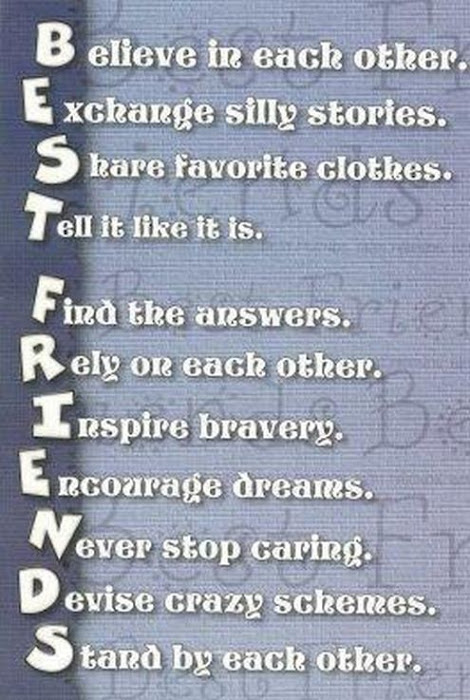Wednesday, 24 December 2008
Greetings from Romania
Get a Voki now!
Thursday, 18 December 2008
General information
a. Age (circle)6–11 12–15 16–20 20–30 30–50 over 50
b. Gender
c. Occupation
1. What is science?
2. Do you like science? Why or why not?
3. How do you think the daily work of a scientist is?
4. What is a scientific theory? Give an example.
5. Does the sun revolve around the Earth?
6. What is a scientific law? Give an example.
7. What is the difference between astronomy and astrology?
8. What is evolution?
9. Why is evolution called a theory?
10. Do you know why an object falls?
11. Do you know why the stars shine?
12. Do you know why eartquakes happen?
Get a Voki now!
Wath's the mean of PISA?
PISA 2006 Science Competencies for Tomorrow's World
The Programme for International Student Assessment (PISA) is an internationally standardised assessment that was jointly developed by participating countries and administered to15-year-olds in schools.
The survey was implemented in 43 countries in the 1st assessment in 2000, in 41 countries in the 2nd assessment in 2003, in 57 countries in the 3rd assessment in 2006 and 62 countries have signed up to participate in the 4th assessment in 2009.
Tests are typically administered to between 4,500 and 10,000 students in each country.
SUMMARY (PISA 2006)
Finland, with an average of 563 score points, was the highest-performing country on the PISA 2006 science scale.
Six other high-scoring countries had mean scores of 530 to 542 points: Canada, Japan and New Zealand and the partner countries/economies Hong Kong-China, Chinese Taipei and Estonia. Australia, the Netherlands, Korea, Germany, the United Kingdom, the Czech Republic, Switzerland, Austria, Belgium and Ireland, and the partner countries/economies Liechtenstein, Slovenia and Macao-China also scored above the OECD average of 500 score points.
On average across OECD countries, 1.3% of 15-year-olds reached Level 6 of the PISA 2006 science scale, the highest proficiency level. These students could consistently identify, explain and apply scientific knowledge, and knowledge about science, in a variety of complex life situations. In New Zealand and Finland this figure was at least 3.9%, three times the OECD average. In the United Kingdom, Australia, Japan and Canada, as well as the partner countries/economies Liechtenstein, Slovenia and Hong Kong-China, between 2 and 3% reached Level 6.
Watch the video: OECD/PISA - An overview of progress so far
This 3-minute video explains what the OECD/PISA programme is and progress made so far. Available in English, French, Spanish, German and Japanese.
Wednesday, 12 November 2008
What is science?
Wednesday, 9 July 2008
Wednesday, 4 June 2008
The feedback evaluation of the project
2008/05/12
IOULIA GKIKA (Gymnasio Lianokladiou - Greece)
MARIANA RADULESCU (Scoala "Liviu Rebreanu" Mioveni, Arges (Romania)
2008/06/04
Students from Italy, Romania, Greece, Slovenia communicated by emails or forum, talking about different subjects that the same students chose or the teachers (like this: do you like or not to go to school, do you like Maths or other subjects...). The students already shared opinions about leisure time, music, movies, books, pets ... in an earlier project named "Global Communication". They were more and more involved exchanging news and ICT skills. They made Power Point presentations of themselves and of their school and towns. I've created a blog named "Friendship-learning.blogspot.com" and invited my partners to upload their works and share them with most people: some of my students asked to learn and try to upload their presentation using different media (overall windows Movie Maker). All the partners contribute to create and share a common dictionary. Finally all the students made a websearching activity (in the folder of each school in the twinspace and under the title "our web resources" as a post in our blog) to exchange learning materials found in the web: so they had discovered that Internet may be a fantastic learning community, but one must select the materials and use his/her critical ability. More: using foreign language to learn other disciplinary contents (as it happens in CLIL, Content and Language Integrated Learning) made the students better understand the language as a tool of acquisition and transmission of knowledge, and not only as an abstract entity regulated by grammar and syntax. It comes so favorite not only the linguistic improvement, but also the motivation; it increases in students the awareness of the utility to learn a foreign language and the trust in their own possibilities.
NORINA CIAFARONE (Istituto Magistrale Marconi – Pescara, Italy)
Friday, 18 April 2008
EDUCATIONAL (and other...) RESOURCES


Our web resources in...
Here the best websites selected by the students participating to the etwinning project “Exchanging friendship and learning skill”…
,,,,,,,,,,,,,,,,,,,,,,,,,,,,,,,,,,,,,,,,,,,,,,,,,,,,,,,,,,,,,,,,,,,,,,,,,,,,,,,,,,,,,,,,,,,,,,,,,,,,,,,,,,,,,,,,,,,,,,,,,,,,,,,,,,,,,,,,,,,,,,,,,,,,,,,,,,,,,,,,,,,,,,,
A R T
5) WELCOME TO THE @RT ROOM
..................


http://www.esa.int/esaKIDSen/fun.html
................................................................................................................................................................
3) A collection of children's on line astronomy activities

http://hea-www.harvard.edu/ECT/the_book/index.html
..................................................................................................................................................................
---------------------------------------------------------------------------------------------
4) "Listen to" this nice website and try to design and launch your satellite
http://www.eduweb.com/portfolio/designsatellite
____________________________________________________________________
...................
ENERGY
..........................
1) ENERGY KIDS PAGE

.............................................................................................................................................

3) RENEWABLE ENERGY

::::::::::::::::::::::::::::::::::::::::::::::::::::::::::::::::::::::::::::::::::::::::::::::::::::::::::::::::::::::
ENGLISH LEARNING
1) Fun songs, stories and other ...to learn and speak English!

2) UPDATE YOUR ENGLISH!

3) Grammar Blast

,,,,,,,,,,,,,,,,,,,,,,,,,,,,,,,,,,,,,,,,,,,,,,,,,,,,,,,,,,,,,,,,,,,,,,,,,,,,,,,,,,,,,,,,,,,,,,,,,,,,,,,,,,,,,,,,,,,,,,,,,,,,,,,,,,,,,,,,,,,,,,,,,,,,
ENVIRONMENT..............................................

2) WATER SCIENCE
for schools
........................................................XXXXXXXXXXXXXX.........................
LEARN...by cartoons!...................................................................................................................





 ################################################
################################################HISTORY
1)WORLD AND BRITISH HISTORY FOR KIDS
,,,,,,,,,,,,,,,,,,,,,
 http://www.coolmath.com/
http://www.coolmath.com/
http://cte.jhu.edu/techacademy/web/2000/heal/siteslist.htmmy/web/2000/heal/siteslist.htm




OOOOOOOOOOOOOOOOOOOOOOOOOOOOOOOOOOOOOOOOOOOOOOOOOOOOOOOOO
MUSIC
1) CREATING MUSIC Creatingmusic.com is a children's online creative music environment for children of all ages. It's a place for kids to compose music, play with musical performance, music games and music puzzles.
2) CLASSICAL MUSIC ARCHIVES
with Composers Biography too!

NEWSPAPERS

from all over the world
;;;;;;;;;;;;;;;;;;;;;;;;;;;;;;;;;;;;;;;;;;;;;;;;;;;;;;;;;;;;;;;;;;;;;;;;;;;;;;;;;;;;;;;;;;;;;;;;;;;;;;;;;;;;;;;;;;;;;;;;;;;;
2) Try SCIENCE
 3) Science for school
3) Science for school































